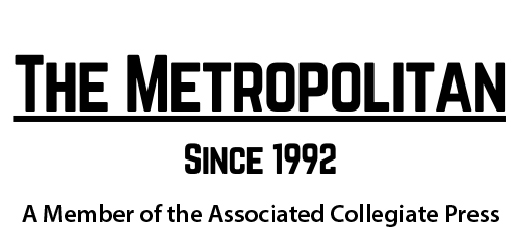Guest Writer
Cyrus Trevino
What reasons do the incarcerated population in Minnesota have to stay on the right path while doing their time, if there is no hope for early release? As of 1982, the Minnesota Legislature abolished its formal parole board system, in the hopes of eliminating racial disparities in decisions on who may be released.
However, Minnesota uses a parole board system that is designed only for the men and women who are serving a life sentence with the possibility of parole. Although the men and women who have a chance to see the parole board hang their hopes of freedom on just one man.
I spoke to Kent Jones, who recently met with this one man. “They pushed my parole hearing out for another two years,” said Jones. I then continued to speak with Jones about how it would be if he were doing time in another state. “I would have been home a long time ago. I don’t even get in trouble,” he said.
Minnesota is one of only four states where the commissioner maintains unilateral authority over who is freed. As of 2019, a bill now being debated in the Legislature would establish a five-member, bipartisan review board tasked with deciding the fate of individuals with life sentences. Then-newly appointed commissioner Paul Schnell endorsed the bill, saying he hopes to share the responsibility he currently holds by himself. In an interview with the Star Tribune, Schnell said, “Should justice be dependent on who sits in the commissioner of corrections role?”
The board would be split 3-2 split partisan lines, in the hopes of reducing bias and better reflecting the interests of Minnesotans. Not much was said about whether the legislation passed the bill or not. After completing Critical Thinking, Restorative Justice, Anger Management, Anxiety Management, Hope Class, Thinking for a Change and Building Character, Jones was asked to complete two more programs in order to go down to a medium facility.
In further discussions with Jones, I noticed his attitude changed towards the DOC forcing him to do more programming. He felt that it was not to his benefit, but that of the DOC. I posed another question to Jones about whether he had ever been disciplined. His response was, “Yes, two times. Once for two days and the other for three days and both charges were dropped because they had the wrong guy.” Over twenty years in prison, only two disciplinary actions and multiple programs completely. Yet his parole hearing was pushed out for another two years. All of these programs were long-term. The minimum term of one of these programs was six months and that was Anxiety Management. A quick summary of the programs: each program lasts eight months and you can only take them one at a time. You are looking at years of programming in the hopes that one man grants you parole.
Now what about those that do not have a life sentence but are serving twenty-plus years?Would a parole board benefit them? It is hard to say. You have men and women completing programs with no hope of an early release, only the will to change. I asked a few individuals who are serving a life sentence with the possibility of parole and their answer was yes. One individual who wanted to be anonymous stated, “Yes. Minnesota should have a parole board.That way you can get out sooner and not do 65-percent of your time.”
Another individual, also serving a life sentence with the possibility of parole, who wished to be anonymous said a parole board would have an important role for incarcerated individuals. “Well if Minnesota had a parole board then you can show the change that you made while in prison and show that you are not the same person that committed one crime that gave you a life sentence.”
Yet there are those that do not even know the function of a parole board. When I asked Luke Erkkila, incarcerated since July 2019, about it, he stated, “I don’t fully understand the benefits of a parole board or what they even do.” I asked Erkkila whether one one man should have so much authority. “Definitely not, he said. “No one man should have that much power over someone.” The tone of his voice was a bit harsh. I believe Errkila’s attitude change was due to the fact that he did not know that was how Minnesota treated their individuals servin life sentences.
.
Many first-degree murderers must serve a minimum of 30 years in prison before being considered for supervised release, Minnesota’s version of parole. Even after completing all that time and programming, there is still no guarantee they’ll ever get out. On top of all that, you have two thousand-plus other incarcerated people who will be released after serving 65-percent of their sentences with no hopes of getting out early. You can follow the rules, do some programming, go to work every day or learn a new trade. Yet if there is no hope for getting out early, then there is no benefit to staying out of trouble or trying to better yourself while in prison.

